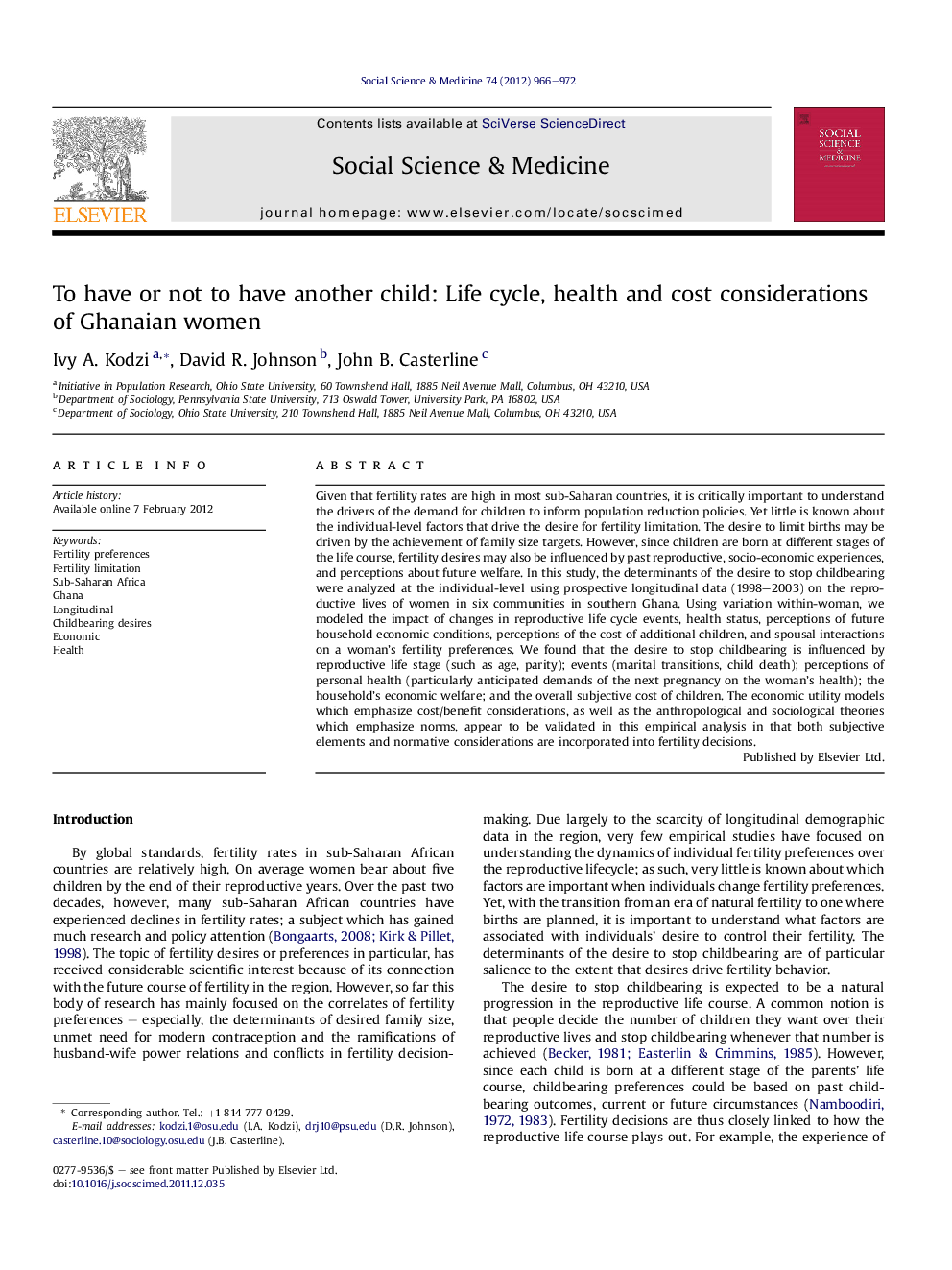| کد مقاله | کد نشریه | سال انتشار | مقاله انگلیسی | نسخه تمام متن |
|---|---|---|---|---|
| 952706 | 927534 | 2012 | 7 صفحه PDF | دانلود رایگان |

Given that fertility rates are high in most sub-Saharan countries, it is critically important to understand the drivers of the demand for children to inform population reduction policies. Yet little is known about the individual-level factors that drive the desire for fertility limitation. The desire to limit births may be driven by the achievement of family size targets. However, since children are born at different stages of the life course, fertility desires may also be influenced by past reproductive, socio-economic experiences, and perceptions about future welfare. In this study, the determinants of the desire to stop childbearing were analyzed at the individual-level using prospective longitudinal data (1998–2003) on the reproductive lives of women in six communities in southern Ghana. Using variation within-woman, we modeled the impact of changes in reproductive life cycle events, health status, perceptions of future household economic conditions, perceptions of the cost of additional children, and spousal interactions on a woman’s fertility preferences. We found that the desire to stop childbearing is influenced by reproductive life stage (such as age, parity); events (marital transitions, child death); perceptions of personal health (particularly anticipated demands of the next pregnancy on the woman’s health); the household’s economic welfare; and the overall subjective cost of children. The economic utility models which emphasize cost/benefit considerations, as well as the anthropological and sociological theories which emphasize norms, appear to be validated in this empirical analysis in that both subjective elements and normative considerations are incorporated into fertility decisions.
► We analyzed the determinants of the desire to limit fertility using prospective longitudinal data (1998–2003) from Ghana.
► Life stage factors (such as age, parity) and events (marriage, child death) influenced the desire to stop childbearing.
► Perceptions of personal health, economic welfare, and the overall subjective cost of children were also important.
Journal: Social Science & Medicine - Volume 74, Issue 7, April 2012, Pages 966–972